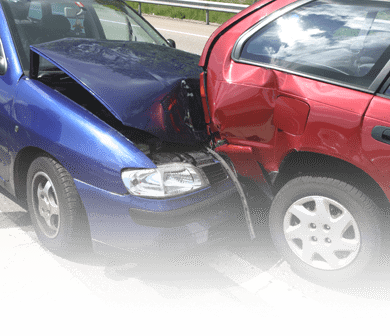You pay nothing until we win
You pay nothing until we win
by Matthew C. Andrew - October 19th, 2023

How often have we had a friend ask to borrow our keys? While it may seem like no big deal, it may be another story if your friend gets into an accident while out.
You may be confused regarding whose car insurance should pay. Auto insurance policies can be difficult to understand, and your insurer may refuse to pay even if they should be covering the accident.
If someone else was involved in an accident driving your car, Attorney Matthew Andrew is here to offer you legal guidance.
Most car accidents are caused by one driver’s failure to take adequate care behind the wheel, known as negligence.
In establishing negligence, you are proving that the other driver was at fault for the accident. Negligence can be broken down into four elements:
States are either classified as at-fault or no-fault when it comes to car insurance. Idaho is an at-fault or “tort” state, meaning that the driver who is responsible for a car accident is legally liable for any resulting injuries or property damage.
Get a Free Consultation
If someone borrowed your car and caused an accident, your insurance policy will be responsible for damages. Although this may not seem fair, it is important to note that insurance is usually tied to the vehicle, not the specific driver.
According to Idaho Code §24-4917, if you give your friend express or implied permission to drive your vehicle, then you are responsible for any injuries or property damage that the person operating your vehicle caused. One person being responsible for the negligence of another is known as “imputed negligence.”
Idaho law puts limits on your liability:
For those people who don’t own a car but borrow and rent cars regularly, you may be required to get non-owner car insurance. Non-owner insurance may be a good option if you are in between cars but don’t want to be without insurance coverage. In Idaho, non-owner car insurance will cover another driver’s bodily injury and property damage claims.
This type of insurance is used as secondary insurance, only to be used after the limits of the borrowed car owner’s policy have been exhausted. Again, your insurance will only be required to cover another driver’s claim if you are found at fault.
Non-owner car insurance usually provides the same liability limits as required by insured drivers in Idaho:25/50/15. For additional coverage, you may be able to add uninsured/underinsured motorist (UM/UIM) or personal injury protection (PIP) coverage.
Your car insurance policy will usually cover any family members related to the policyholders and residing in the same home. The policy may not outright state this, but it may be implied.
There are exceptions to the rule. Depending on the terms of your policy, your auto insurer may not cover another driver in certain circumstances.
As previously mentioned, your car insurance will cover another driver if you give that individual permission to drive your vehicle. But what if you did not give another driver permission to use your car?
In this situation, your friend’s car insurance would be the primary coverage for the accident. However, proving that your friend did not have permission to drive your car may be difficult. An experienced car accident lawyer will be crucial in helping you speak with the insurance company.
If your auto policy lists a specific person who is not covered under your insurance, then your insurance cannot be used if that person gets into an accident driving your car. Named drivers would be people who have access to your vehicle but who you do not want driving it.
For instance, if you live with your sister, who has a history of drunk driving, you will likely list her as an excluded driver on your policy. If an excluded driver gets into an accident driving your vehicle, then that driver’s own policy will come into effect. There is a good chance that your own premiums will increase, and your auto insurer may refuse to renew your policy in the future.
Negligent entrustment is when you knowingly lend your vehicle to a person who is incapable of responsibly driving. This may be a driver who has a history of DUIs, a medical condition that prevents them from legally driving (i.e., epilepsy), or someone who has a history of causing accidents.
In Kinney v. Smith, the Supreme Court of Idaho ruled that if a person knowingly lends his vehicle to another person that he knows is inebriated, then the car owner will be responsible for any injuries or damage the drunk driver causes.
Negligent entrustment is a form of imputed negligence. It makes you vicariously responsible for the actions of another person. In cases of negligent entrustment, the insurance company will not cover your claim.
Think twice before you let someone else borrow your car. Even if your friend needs a loaner just to run to the store, letting another person use your car can come with serious ramifications.
If you are negotiating with insurance after your friend or relative has been involved in an accident with your car, we can help. Contact Andrew Injury Law today to schedule your free consultation.
Matt Andrew has been an attorney and member of the Idaho Bar since 2007 and has a varied and fascinating legal career. Since 2013, Matt has focused on representing seriously injured people in personal injury and workers’ compensation cases. Matt has successfully tried multiple cases to verdict before the Idaho District Courts and the Idaho Industrial Commission.Matthew C. Andrew
Member of the Idaho Bar since 2007
Bar Number: #7698
Location: Meridian, Nampa, and Caldwell, Idaho.
Take a look at other case results here.
A contingency fee is a type of payment arrangement that our Idaho personal injury firm uses. It is an agreement with our clients where our attorney’s fee is contingent upon the successful outcome of the case. In other words, we only receive payment if we win the case or secure a favorable settlement for you. That payment comes from your final settlement or award, so you never need funds from your own pocket to pay us.
Under a contingency fee agreement, Andrew Injury Law also typically covers all the upfront costs associated with your case, such as court fees, document preparation, expert witnesses, and investigation expenses. These costs are then recouped from the final settlement or judgment if the case is successful.
We use contingency fees to provide access to justice for those without the financial means to afford legal representation. It allows everyone to pursue a personal injury claim with the right legal help – and without worrying about the added cost.
Read more about contingency fees here.
Personal injury damages refer to the compensation you might be entitled to if you suffered harm due to the wrongful conduct of someone else. The law provides relief for such injuries in the form of monetary damages.
Damages can fall into different categories:
Economic damages – These compensate for financial losses you can prove with bills or receipts. They often include medical bills, lost income from missing work, out-of-pocket injury-related costs, future expenses and lost earnings, and more.
Noneconomic damages – Some losses are not tied to bills or expenses, but you still deserve compensation for them. Some intangible and noneconomic damages include pain and suffering, mental trauma, and permanent disabilities or disfigurement.
Punitive damages – These do not apply in every case. However, if the party that caused your injuries acted so egregiously that the court decides to impose additional liability, the court may award punitive damages to you up to a certain amount. These are not tied to your specific losses, but instead the conduct of the defendant.
Read More: Is Idaho a No-Fault State?
States set deadlines for taking legal action called statutes of limitations. Once the deadline passes, you cannot file a successful claim. In Idaho, the statute of limitations is two years from the date of the injury, and there are few exceptions to this time limit.
The purpose of a statute of limitations is to ensure that legal actions are initiated within a reasonable period after the injury occurs. It provides a degree of certainty and finality to potential legal disputes and helps ensure evidence is reliable and does not weaken over time.
However, the statute of limitations also means you need to act fast following a personal injury. There is much to do before filing a lawsuit, so always seek help from Andrew Injury Law as soon as you know you have injuries and suspect someone else was at fault.
Read more about the Idaho statute of limitations here.
Naturally, you want to know how much money you might expect for your injuries and losses. Settlements and awards can vary widely – ranging from a few thousand dollars to multi-millions. Unfortunately, there is no way to advise what your claim might be worth without fully evaluating your circumstances.
Some factors we consider when determining the value of your claim include:
The insurance company will undervalue your claim – but we never will. You can trust Andrew Injury Law to fight for the total compensation you need and deserve.
Read more about how a personal injury claim in Idaho is calculated here.
You may not realize that it's incredibly common for a police officer to issue a traffic ticket to one or mo...
Car crashes in Idaho are increasing at an alarming rate. According to the Office of Highway Safety in Idaho...
Did you know that Americans drive by car more than any other nation? Unsurprisingly, countless accidents ha...

Accidental injuries cause over 24 million emergency room visits per year in the U.S., and many of these injuries are the fault of other parties.

Idaho reported more than 27,500 traffic crashes in a recent year, with over 12,600 people suffering injuries and 271 fatalities. We help car crash victims seek justice.

Commercial trucks are critical to Idaho’s economy, but they also put everyone at risk of serious collisions and injuries. We stand up to trucking companies.

Motorcyclists love the wide open spaces of Idaho, but other drivers are not always careful and can hit motorcycles, causing devastating injuries and losses.

After a fatal accident, families can face overwhelming emotional and financial losses. We can help your family seek financial support and justice for your loved one’s wrongful death.

Many accidents happen because property owners or businesses do not maintain their premises. If you slipped and fell or had another premises-related accident, we can help.

Whether you work in construction, logging, or in an office, injuries can happen. We assist injured workers in seeking maximum compensation for their injuries.

Getting the workers’ comp you deserve for a job-related illness or injury can be more challenging than you expect. Seek help with your claim from our legal team.
If you or a loved one has been seriously injured, please fill out the form below for your free consultation or call us at 208-517-7670
No Fees Unless We Win Your Case
